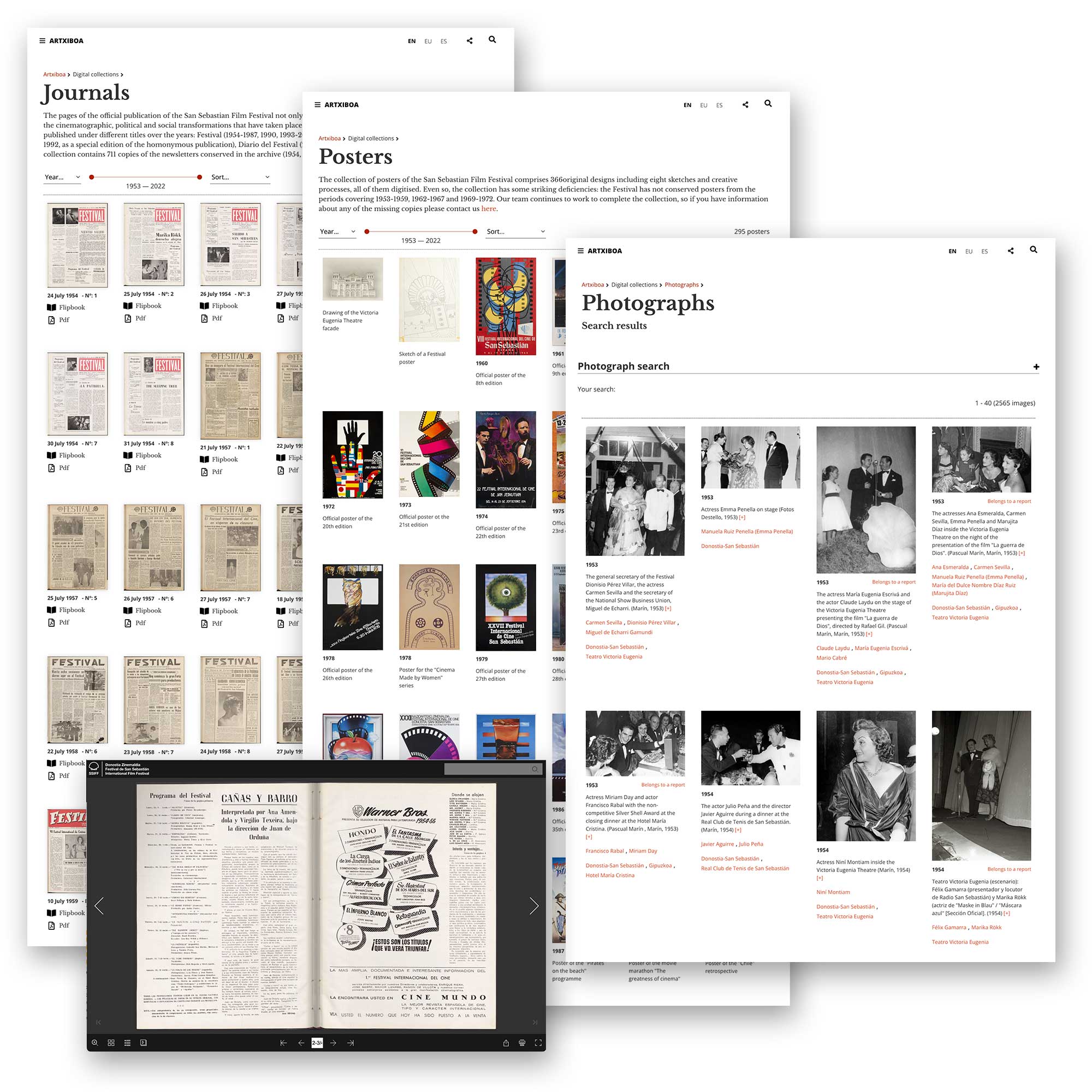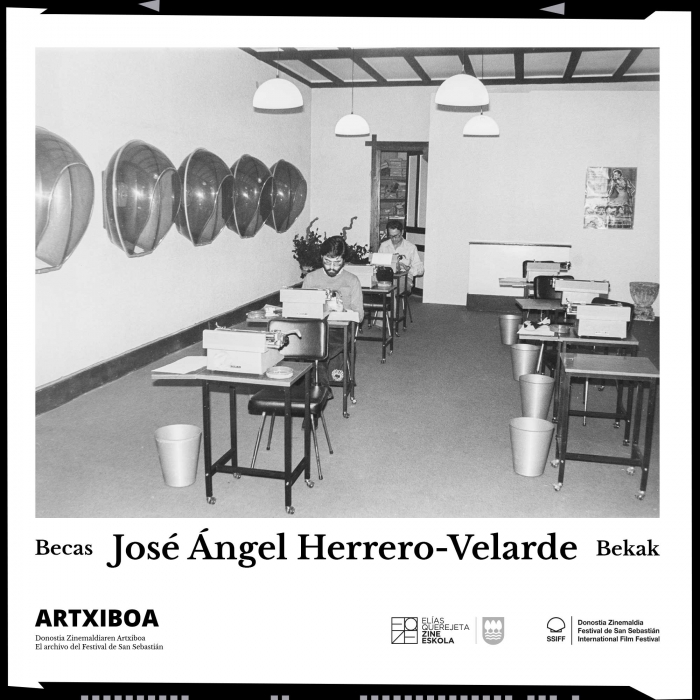The second call inviting submissions for the José Ángel Herrero-Velarde grants issued by the San Sebastian Festival and the Elías Querejeta Zine Eskola will promote the research work of Minerva Campos, Violeta Kovacsics and Aida Vallejo, focused on the San Sebastian Festival’s relationship with the International Federation of Film Producers’ Associations (FIAPF), its coming together with the historiography of the films of the Transition and its sociocultural history through the analysis of its spaces.
The aim of these grants, going in their second call to researchers born or residents of Spain, is to promote research into the Festival’s historical archive, generating completely new academic texts taking the archive as their main source to look back at the past of the event while engaging in permanent discussion with its situation today and tomorrow.
A committee of members representing the San Sebastian Festival and the Elías Querejeta Zine Eskola made its decision on the three new research works last month. The committee selected the proposals of Minerva Campos, Violeta Kovacsics and Aida Vallejo “for the diversity and relevance of their topics, their contribution to the theoretical study of film festivals and their use of the Festival’s archive material as their primary source”.
Minerva Campos, professor at the University of Castilla-La Mancha, brings a research project proposing an “analysis of relations between the San Sebastian Festival and the International Federation of Film Producers’ Associations (FIAPF) in its early decades, concentrating on the event’s ups and downs with the A-category status”. In her hypothesis, Campos suggests that “the instability and successive changes experienced by the Festival in the fields of politics, international diplomacy, local economy and cinematic art between 1953 and 1985 are the result of a natural evolution endeavouring to consolidate its singular identity and to occupy a specific role within the international cinematic context”.
Violeta Kovacsics, film critic and teacher at the Pompeu Fabra University, will address the rarely explored coming together between the historiography of the films of the Transition and the challenges and difficulties faced during those years by the San Sebastian event. The aim of the study is “to analyse the role played by the San Sebastian Festival when defining the trends of aesthetics, narrative and discursive policy in the period of the Transition”.
The research project brought by Aida Vallejo, a researcher and professor at the University of the Basque Country, comes with the proposal “to identify the spaces used by the Festival to go about its activity and to compose a sociocultural story of the event as a collective experience and place to meet and exchange ideas”. The work, with a strong graphic angle, will produce a cartographic representation of the Festival spaces (both those used for screening and those serving to host parallel activities) to identify key meetings that would later have an effect on the career of moviemakers and professionals in the sector.
These research projects join those selected for the first call, which completed their residencies in July, works that looked into films from countries in the socialist sphere to have screened at the Festival, by the writer and programmer Felipe Cabrerizo; the relationship of the event with the feature films of new filmmakers, proposed by the professor Endika Rey; and the reunion in San Sebastian between Josefina Molina, Pilar Miró and Cecilia Bartolomé, studied closely by the former EQZE student and teacher, Neus Sabaté.
Research residency
The research grant will give those selected the sum of 3,500 euros, in addition to travel and accommodation costs. Furthermore, during the two weeks of access to the Archive facilities they will receive per diems corresponding to the days of consultation.
During their time at the Tabakalera building, home of all materials making up the Festival archive, the participants will be assigned a space for work and consultation in the Filmoteca Vasca. They will also have guaranteed access to the cinematic collections and archives present in and adjacent to the building and will have access to the building’s facilities, resources and activities, including film screenings, workshops and masterclasses.
The works, of between 6,000 and 10,000 words, must be completed within seven months from the selection date, with the possibility of requesting an extension of up to two months.
The Festival will promote publication of the projects and can function as an intermediary between the researchers and prestigious publishers or journals potentially interested in publishing the projects. Said research works may also be considered by the editorial committee of the academic journal ZINE: Film Research Series jointly published by the Festival, the Elías Querejeta Zine Eskola and the Filmoteca Vasca.
PROJECTS SELECTED FOR THE SECOND CALL OF THE JOSÉ ÁNGEL HERRERO-VELARDE GRANTS
- Minerva Campos: The San Sebastian International Film Festival’s “A” status at stake: negotiations with the FIAPF and cinematic diplomacy (1953-1985).
- Aida Vallejo: Encounters at the Zinemaldia. A sociocultural history of the San Sebastian Festival through its spaces.
- Violeta Kovacsics: The cinema of the Transition and the San Sebastian Festival.







